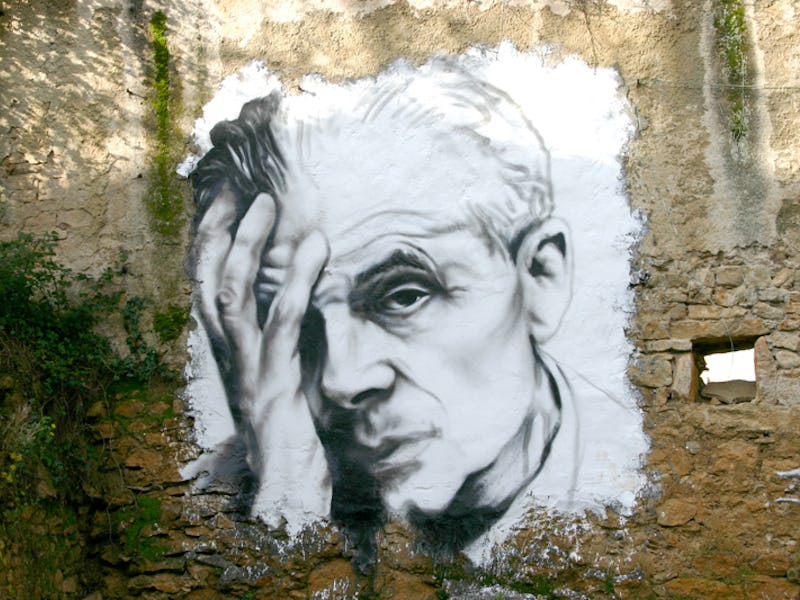It's a Brave New World for a Brave New World
We get it. It's a great phrase. But you're using it wrong and we're gonna need it down the pike.

In Shakespeare’s The Tempest, a teenage girl named Miranda has essentially spent her entire life on an island alone, save for her curmudgeon wizard dad. When a magically produced storm causes a crew of noblemen to seek refuge on her island, Miranda is understandably excited about seeing other human beings. “O wonder!” she cries. “How many godly creatures are there! How beauteous mankind is! O brave new world that has such people in’t!”
You know these words because they echoed in the mouth of John the Savage in Aldous Huxley’s 1931 Brave New World. Like Miranda, John knows only a dark, confined life made so by a parent. He yearns to see the “brave new world” outside of what he knows. However, the brave new worlds that both John and Miranda eventually enter are not, in fact, wondrous places. The phrase is basically a placeholder for dramatic irony. Curious then that the “Brave New World of…” formulation has all but taken over the media.
To borrow another phrase: “I don’t think it means what you think it means.”
There is not a brave new world for cricket, nor for digital music, or television streaming. Insurance premiums are not experiencing a brave new world and neither are airline companies. If robots turn around and try to kill us all that would be a brave new world indeed, or if our clones trap us in a caste system, a case could be made. But a bright outlook does not a brave new world make.
"Brave New World Photography"
The lack of a standardized definition for a “brave new world” as an idiom doesn’t help the problem. Merriam-Webster defines the phrase as “a situation or area of activity that is created by the development of something completely new and different” which is misleading at best. Dictionary.com gets a bit closer, with the suggestion that it is “a future world or society experiencing positive and negative effects from major changes.”
But it’s the MacMillan Dictionary that really gets it with their definition of “a society in which changes should have made people’s lives much better than before but in which people’s lives are really worse in many ways.”
Brave new world is a phrase of snark. It’s the admission that something that appears to be wondrous is very likely sick with corruption.
This definition is most obvious in Huxley’s use of the phrase — this brave new world that John seeks is supposed to be advanced because of science, but it’s science that has been misused as an instrument of power by a morally crooked society. But “brave new world” is also to some effect in its’ original phrasing in The Tempest — while Miranda’s intentions are true when she says it, Shakespeare means for it to be ironic. Miranda doesn’t know shit about these guys she’s calling beautiful, but her father does. They’re the same jerks who stole his dukedom and set him to sea in a sinking ship.
That’s why after her exclamation he points out “‘Tis new to thee.” He knows that this world Miranda dreams of, and sees represented in these strangers, is not one of beauty. It’s the world that made it so that she lives on a deserted island in the first place.
A good example of brave new world? This article from BuzzFeed: “Brave New World of ‘Gene Doping’ Ahead, Scientists Warn At Conference.” Gene doping seems like it would be cool, but it actually can really screw everything up. A brave new world isn’t one you want, but it’s one that over- indulgent man probably deserves.